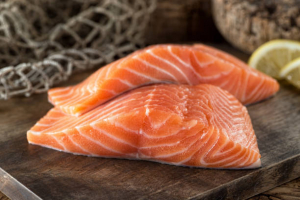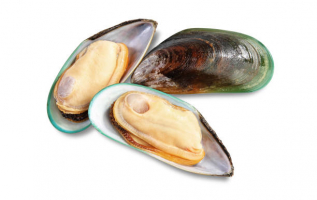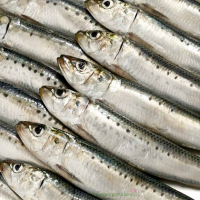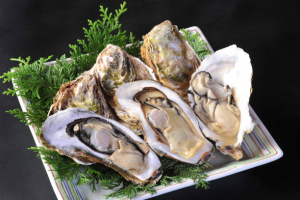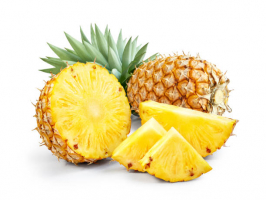Top 10 Health Benefits of Eating Onions
Though all veggies are beneficial to health, many types provide additional advantages. Onions are members of the flowering plant genus Allium, which also ... read more...contains garlic, shallots, leeks, and chives. These veggies include a variety of vitamins, minerals, and powerful plant chemicals that have been proved to benefit health in a variety of ways. Onions' therapeutic benefits have been known since ancient times when they were used to cure maladies such as headaches, heart disease, and mouth sores. Here are the most impressive onion health benefits.
-
Onions are nutrient-dense, which means they have few calories but a lot of vitamins and minerals. One medium onion contains just 44 calories but is high in vitamins, minerals, and fiber. This vegetable is abundant in vitamin C, a substance that aids in immunological health, collagen formation, tissue repair, and iron absorption. Vitamin C also functions as a potent antioxidant in the body, shielding cells from harm caused by unstable molecules known as free radicals. Onions are particularly high in B vitamins, such as folate (B9) and pyridoxine (B6), both of which are essential for metabolism, red blood cell synthesis, and neurological function.
Finally, they are a wonderful source of potassium, a mineral that many individuals need. In reality, the average potassium consumption in the United States is little more than half the recommended daily value (DV) of 4,700 mg. Potassium is required for normal cellular activity, fluid balance, neuronal transmission, renal function, and muscular contraction.
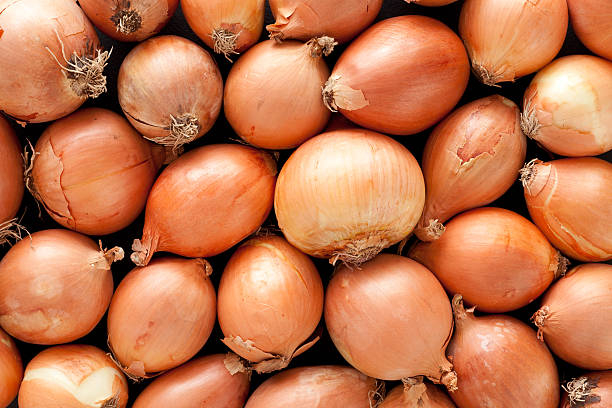
Pack With Nutrients 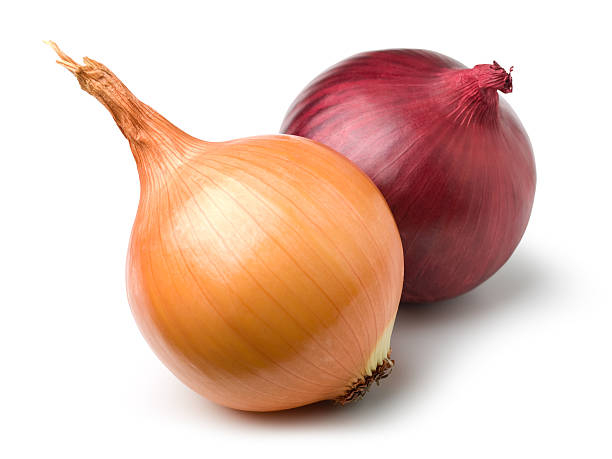
Pack With Nutrients -
Onions include antioxidants and chemicals that combat inflammation, lower triglycerides, and lower cholesterol levels, all of which may lessen the risk of heart disease. Their powerful anti-inflammatory qualities may also help lower blood pressure and prevent blood clots. Quercetin is a flavonoid antioxidant found in high concentrations in onions. Because it is an anti-inflammatory, it may help reduce risk factors for heart disease, such as high blood pressure.
A dosage of 162 mg per day of quercetin-rich onion extract significantly decreased systolic blood pressure by 3–6 mmHg compared to a placebo in a trial of 70 overweight persons with high blood pressure. Onions have been demonstrated to lower cholesterol levels. A study of 54 women with polycystic ovary syndrome (PCOS) revealed that eating raw red onions (40–50 grams per day if overweight, 50–60 grams per day if obese) for eight weeks lowered total and "bad" LDL cholesterol compared to a control group. Furthermore, animal studies suggest that eating onions may lower risk factors for heart disease, such as inflammation, excessive triglyceride levels, and blood clot formation.
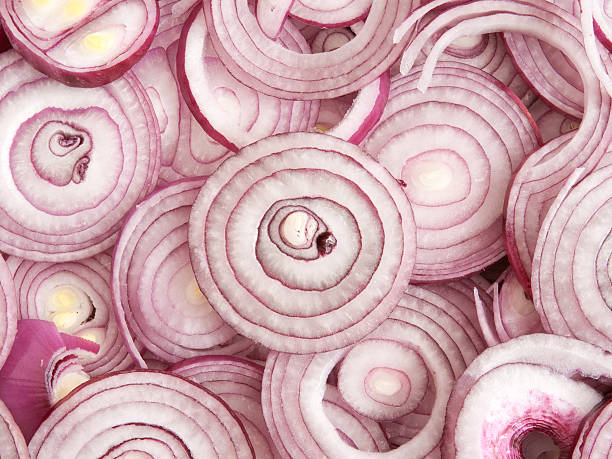
Benefit Heart Health 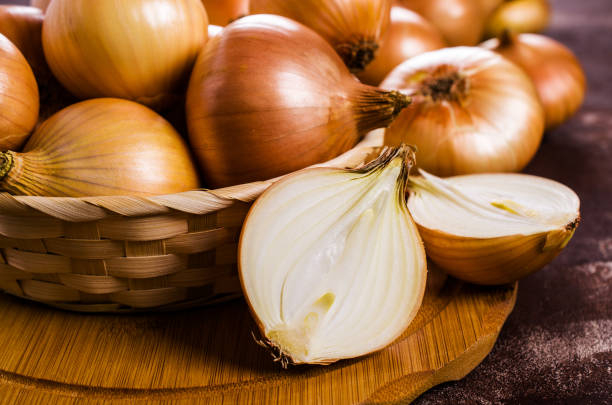
Benefit Heart Health -
Antioxidants are substances that prevent oxidation, which causes cellular damage and contributes to illnesses such as cancer, diabetes, and heart disease. Onions are a good source of antioxidants. They really contain about 25 distinct types of flavonoid antioxidants. Red onions, in particular, contain anthocyanins, which are flavonoid-family plant pigments that give red onions their rich hue. Multiple population studies have revealed that persons who consume more anthocyanin-rich foods had a lower risk of heart disease.
A study of 43,880 males, for example, found that anthocyanin consumption as high as 613 mg per day was associated with a 14% decreased incidence of nonfatal heart attacks. Similarly, a study of 93,600 women found that those who ate the most anthocyanin-rich foods were 32% less likely to have a heart attack than those who ate the least. Anthocyanins have also been shown to protect against some forms of cancer and diabetes.
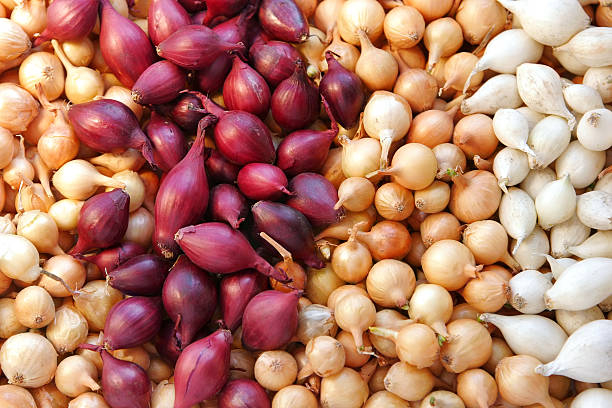
Load With Antioxidants 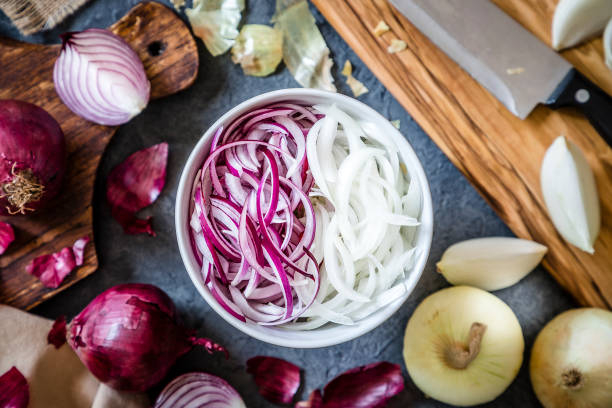
Load With Antioxidants -
Consuming Allium vegetables such as garlic and onions has been associated with a decreased risk of various cancers such as stomach and colorectal. According to a study of 26 research, persons who eat the most allium vegetables were 22% less likely to be diagnosed with stomach cancer than those who consumed the least amount. Furthermore, a meta-analysis of 16 trials including 13,333 persons found that those with the greatest onion consumption had a 15% lower risk of colorectal cancer compared to those with the lowest intake.
Sulfur compounds and flavonoid antioxidants present in allium vegetables have been related to cancer-fighting effects. Onions, for example, contain onionin A, a sulfur-containing molecule that has been demonstrated in animal tests to reduce tumor formation and prevent the spread of ovarian and lung cancer. Onions also contain the flavonoid antioxidants fisetin and quercetin, which may suppress tumor development.

Contain Cancer-Fighting Compounds 
Contain Cancer-Fighting Compounds -
Eating onions may aid in blood sugar regulation, which is especially important for persons with diabetes or prediabetes. A study of 42 persons with type 2 diabetes found that consuming 3.5 ounces (100 grams) of fresh red onion after four hours lowered fasting blood sugar levels by roughly 40 mg/dl. Furthermore, animal studies have suggested that eating onions may help with blood sugar regulation.
A study found that diabetic rats fed the diet with 5% onion extract for 28 days had lower fasting blood sugar and significantly lower body fat than the control group. Specific onion components, such as quercetin and sulfur compounds, have anti-diabetic properties. Quercetin, for example, has been found to interact with cells in the small intestine, pancreas, skeletal muscle, adipose tissue, and liver to regulate whole-body blood sugar levels. Consuming onions may help lower high blood sugar levels due to the numerous beneficial components contained in them.
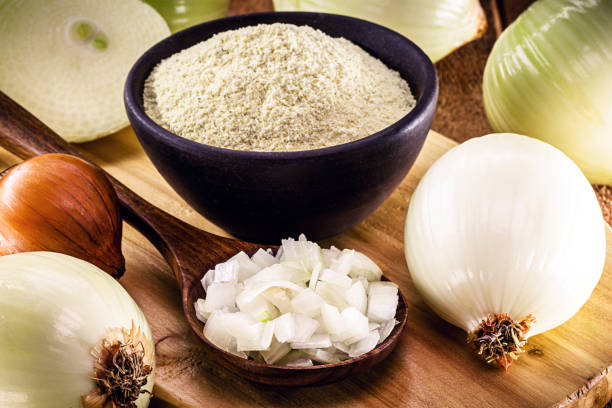
Help Control Blood Sugar 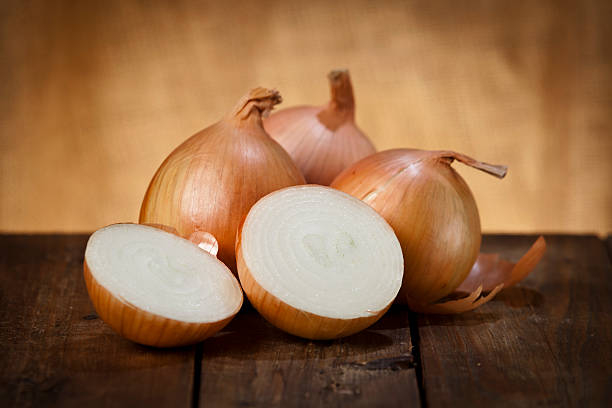
Help Control Blood Sugar -
Though dairy is widely credited with improving bone health, several other foods, like onions, may also contribute to healthy bones. A study of 24 middle-aged and postmenopausal women found that those who drank 3.4 ounces (100 ml) of onion juice daily for eight weeks had better bone mineral density and antioxidant activity than a control group.
Another research of 507 perimenopausal and postmenopausal women discovered that those who ate onions at least once a day had 5% higher total bone density than those who ate them just once a month or less. Furthermore, the study found that older women who ate onions often reduced their risk of hip fracture by more than 20% compared to those who never ate them. Onions are thought to help reduce oxidative stress, increase antioxidant levels, and minimize bone loss, which may help prevent osteoporosis and increase bone density.
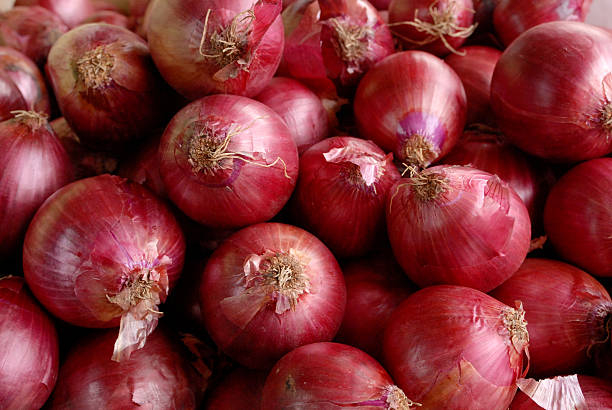
Boost Bone Density 
Boost Bone Density -
Onions can combat potentially harmful bacteria such as E. coli, Pseudomonas aeruginosa, Staphylococcus aureus (S. aureus), and Bacillus cereus. In addition, onion extract has been proven to suppress the growth of Vibrio cholerae, a pathogen that is a serious public health risk in underdeveloped countries. Quercetin derived from onions appears to be a very effective antibacterial agent.
In a test-tube investigation, quercetin isolated from yellow onion skin effectively suppressed the development of Helicobacter pylori (H. pylori) and Methicillin-resistant Staphylococcus aureus (MRSA). H. pylori is a bacteria linked to stomach ulcers and some malignancies of the digestive tract, whereas MRSA is an antibiotic-resistant bacteria that cause infections throughout the body. Another research in test tubes discovered that quercetin harmed the cell walls and membranes of E. coli and S. aureus.
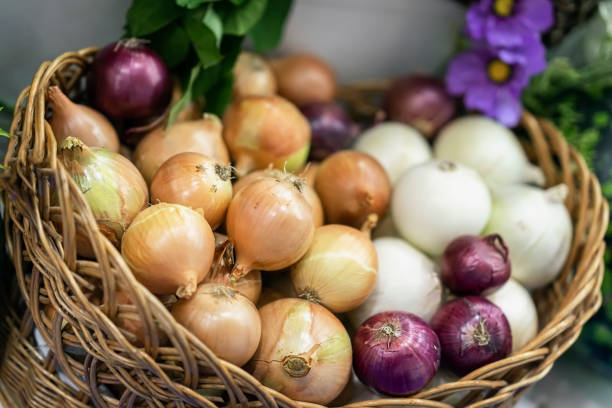
Have Antibacterial Properties 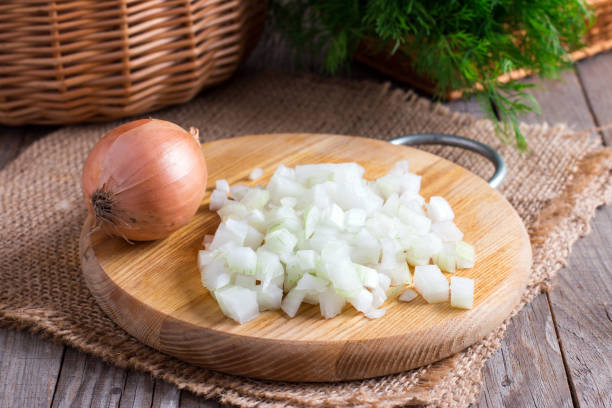
Have Antibacterial Properties -
Onions are high in fiber and prebiotics, both of which are essential for gut health. Prebiotics are nondigestible fibers that are digested by helpful gut microbes. Gut bacteria consume prebiotics and produce short-chain fatty acids such as acetate, propionate, and butyrate. According to studies, these short-chain fatty acids improve gut health, increase immunity, reduce inflammation, and improve digestion.
Furthermore, eating prebiotic-rich meals increases probiotics, such as Lactobacillus and bifidobacteria strains, which promote gut health. A prebiotic-rich diet may aid in the absorption of essential minerals such as calcium, which may promote bone health. Onions are high in prebiotics such as inulin and fructooligosaccharides. These boost the number of beneficial bacteria in your stomach and promote immunological function. Onions are high in prebiotics, which assists enhance digestive health, bacterial balance in the gut, and the immune system.
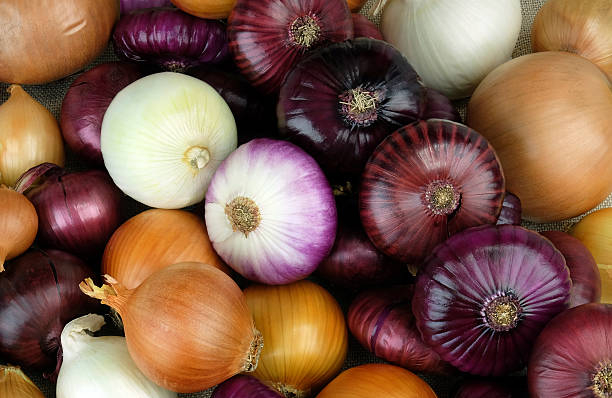
Boost Digestive Health 
Boost Digestive Health -
Onions are a common ingredient in kitchens all across the world. They provide flavor to savory meals and can be eaten raw or cooked. Not to mention that they can increase your fiber, vitamin, and mineral consumption.
Here are some tips on how to add onions to your diet:
- Use raw onions to add a kick of flavor to your guacamole recipe.
- Add caramelized onions to savory baked goods.
- Combine cooked onions with other vegetables for a healthy side dish.
- Try adding cooked onions to egg dishes, such as omelets, frittatas or quiches.
- Top meat, chicken or tofu with sauteed onions.
- Add thinly sliced red onions to your favorite salad.
- Make a fiber-rich salad with chickpeas, chopped onions and red peppers.
- Use onion and garlic as a base for stocks and soups.
- Throw onions into stir-fry dishes.
- Top tacos, fajitas and other Mexican dishes with chopped raw onions.
- Make a homemade salsa with onions, tomatoes and fresh cilantro.
- Prepare a hearty onion and vegetable soup.
- Add onions to chili recipes for a flavor boost.
- Blend raw onions with fresh herbs, vinegar and olive oil for a tasty homemade salad dressing.

Easy to Add to Your Diet 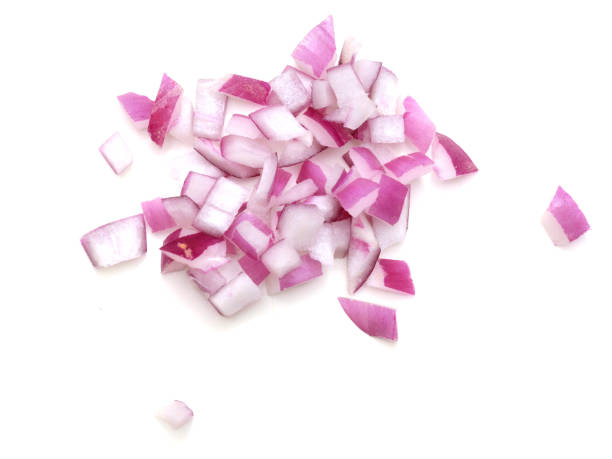
Easy to Add to Your Diet -
Cancer is caused by free radicals that enter the body and induce aberrant cell proliferation. Cancer is a disease that continues to spread. In this scenario, prevention is better than treatment, and eating foods that help minimize its possibilities is the best solution. Onions include phytonutrients like quercetin and other flavonoids that aid in the fight against free radicals. Onion sulfur compounds are also beneficial in the battle against cancer.
Detoxing has been a fashionable health fad in recent years, but it is also highly important for your body. Detoxing simply aids your body in flushing out toxins and bad cholesterol caused by poor eating habits and a lack of activity. Onions are an excellent strategy to maintain your body clear of toxins. Onions include sulfur compounds and amino acids, which aid to cleanse the digestive tract and eliminating toxic poisons from inside.

Prevent Cancer and Detoxify Properties 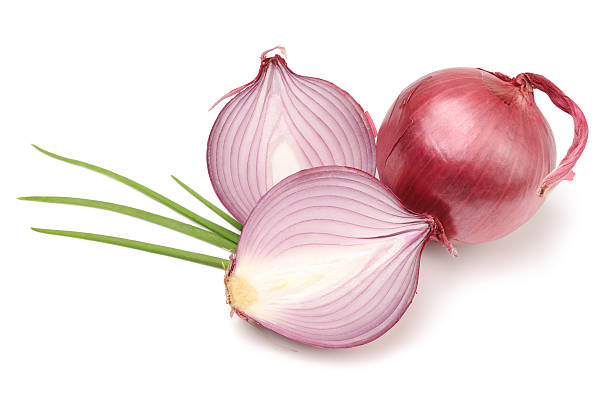
Prevent Cancer and Detoxify Properties













